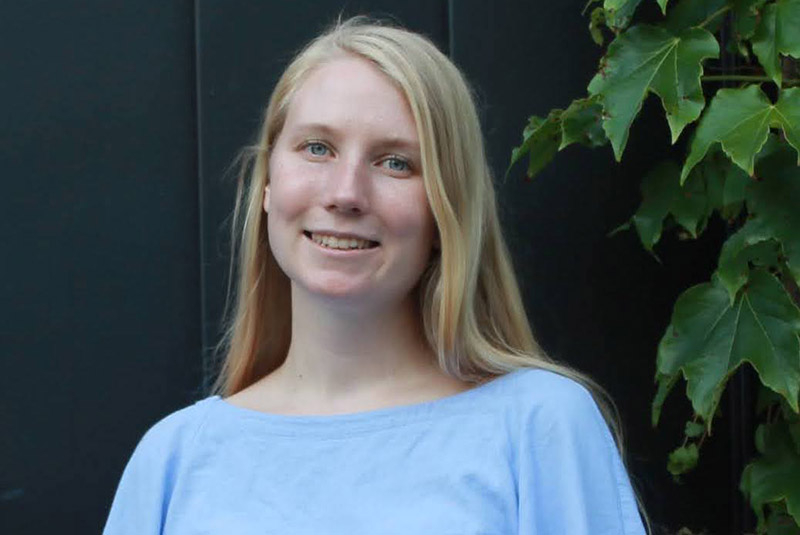Advancing the Debate on World Affairs

Edie Wilson
MAIR '21
Q: What encouraged you to apply to Johns Hopkins SAIS?
A: I spoke to alumni from my undergraduate institution, Hamilton College, who were attending Johns Hopkins SAIS or had recently graduated. They spoke enthusiastically about specific courses and professors, so I decided to apply. After gaining acceptance, I remember speaking with one of the school’s professors who taught a course on migration which I ended up taking during my first semester at the school. It remains one of my favorites.
As for studying international economics - and focusing on development economics - I appreciate the discipline because it offers the opportunity to combine data points with context. After studying anthropology at Hamilton, I value ethnographic research and context. I also enjoy working with numbers and models that give a framework to explore complex issues. Applying economics to certain situations can allow for the combination of numbers and stories. It is also a field that I see growing and changing, which is exciting.
Q: What has been one of your favorite experiences during your first year of graduate study?
A: During my first and second years at the school the moments that stick out have been collaborating with other students. Many of my study groups from last year have remained in regular communication.
I also really liked the weekly cookie hour and hanging out with other students in the library last year.
Q: Could you please tell us about your role contributing to SAIS Review?
A: This year, I am serving as the Editor-in-Chief on the SAIS Review Editorial Board. This means that I engage with many aspects of the publication. The SAIS Review Editorial Board takes the lead in putting together the print edition, the website, and the new podcast. In my role, I do final edits on articles, manage logistics, coordinate with our faculty advisor and the school’s Foreign Policy Institute, tweet from @SAISReview, and more. Additionally, we put together launch panels with contributing authors from around the globe and solicit student book reviews. I am so thankful to be serving with an amazing editorial board staff, and I am excited for the international relations community to engage with the material we publish.
One of our goals this year is to publish diverse perspectives - for example, in our upcoming print issue we have been striving to feature authors from different locations around the world. I think that so often international relations can become an echo chamber that creates major blind spots in the field and causes important issues to go ignored. Thankfully, I am starting to see some significant publications and institutions seek to rectify this.
Last year, I was an assistant editor for the SAIS Review. The role was wonderful to engage with leading scholars in the international relations field, hone my editing skills, and learn about the publication. I would recommend the experience enthusiastically to new students.
Q: What do you hope to do with your degree after you graduate?
A: I am particularly interested in economic migration and government tax policy - from the local to national level.
Q: What are your hobbies outside of class?
A: Outside of classes, I do a lot of long-distance running. I once came in second overall for women in a half marathon. This week, I ran a 10-mile virtual race for fun. I appreciate the way long slow distance runs (LSD as my high school cross country coach called it) allow me to disconnect and process thoughts and ideas.
Back to Student Stories